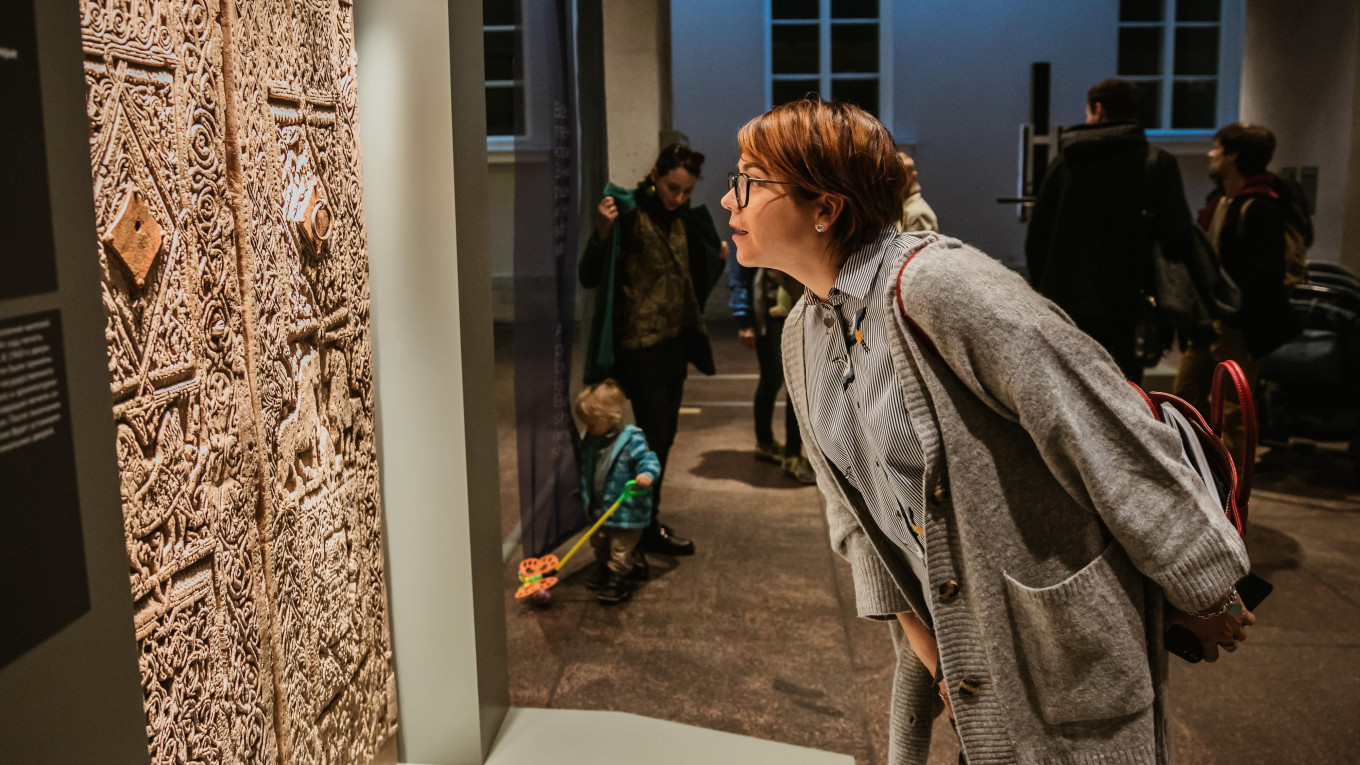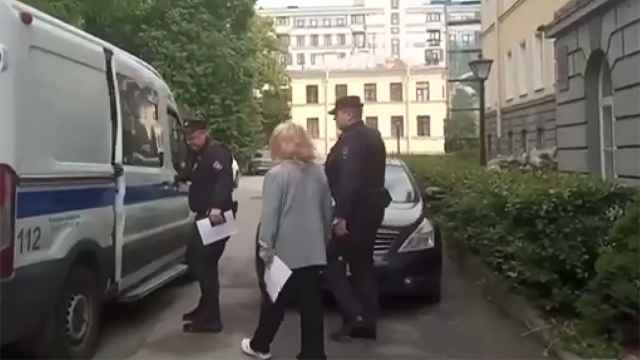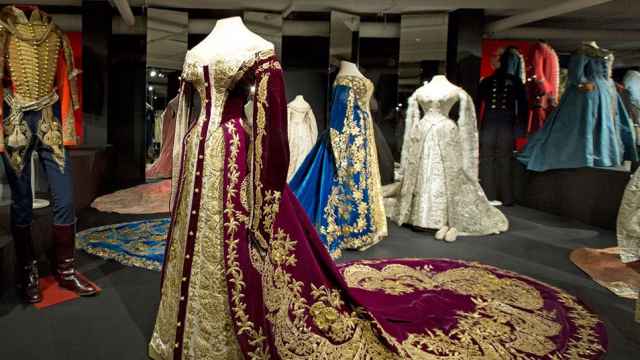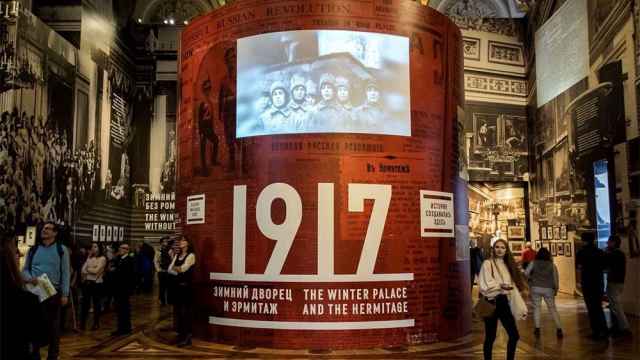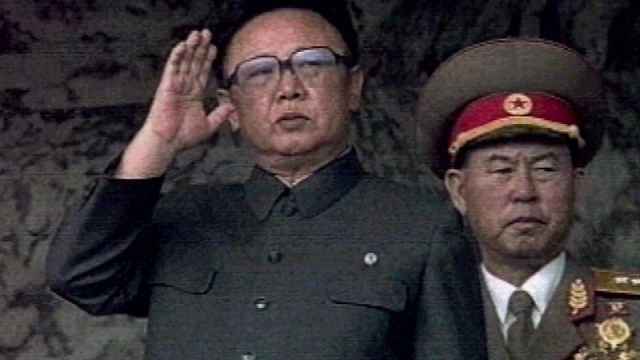For the first time in its history, the State Hermitage Museum is hosting an exhibition that doesn’t have a single original item. Words of Stones, on display at the museum’s General Staff building, is devoted to a digitalized version of the ancient Muslim settlement of Qala–Quraysh in southern Dagestan. It consists entirely of copies of ancient artefacts.
The tiny village of Qala-Quraysh is tucked away in the mountains of Dagestan and extremely hard to access: the final bit of the road is impassable for vehicles and can only be made on foot. The settlement once served as the capital of the mighty Eastern khanate and is now a sacred place for religious pilgrims, who make the hard journey to the mountains to visit the memorial cemetery, where the remains of khanate’s legendary powerful rulers lie. While not every gravestone among the 30 markers dating from the 13th to the 19th century bears a name, the beauty of the artefacts speak volumes.
The historical monuments of the famous fortress settlement have been digitalized by the Peri Foundation, which is now completing its next work — digitalizing the extraordinary frescoes painted by Dionysius in Ferapontovo, a UNESCO heritage site.
When technology meets history and enthusiasm, are we seeing the exhibition of the future? As you stand in the midst of this unusual display, completely unheard of for a museum like the Hermitage, you wonder about the value of these non-original exhibits and how to look at them.
Forging a New International Covenant
The answers were discussed at an international conference that coincided with the opening and sought to develop a document that would codify the legal, technological, terminological and ethical aspects of digital copying. The driving force behind the project, endorsed by both UNESCO and the International Council of Museums (ICOM), and titled “Development of the International Convention on Digital Reproduction of Art and Cultural Heritage,” is the Victoria&Albert Museum in London and the Ziyavudin Magomedov PERI Foundation in Russia.
The idea of a new document was inspired by the 1867 Convention for promoting universally Reproduction of Works of Art for the Benefit of Museums of All Countries, which was signed by Great Britain and Ireland, Prussia, Hesse, Saxony, France, Belgium, Russia, Sweden and Norway, Italy, Austria and Denmark. For the first time in history, the one-page Convention encouraged and regulated the sharing of copies of cultural objects and set a legal foundation for reproducing historical objects of art without damaging the originals.
“At the time of the 1867 Convention, Europe was no less united than today, with the only difference being that it was held together through the European royal courts,” Mikhail Piotrovsky, the director of the State Hermitage Museum, told The Moscow Times. “Today we are looking at this issue from a broader and more modern perspective, and the dialogue involves participants from far beyond Europe.”
The world has indeed changed since 1867. Today, 150 years later, there are new threats to culture, and far more players have emerged in the field of preservation and protection of the world’s historical legacy and artefacts. In addition to museums there are universities and research centers, charitable or cultural foundations and even governments. These changes have brought a clear need to revisit the relationship between the copy and the original.
“Museums across the world have decided that we need to revisit this document; we are now using extraordinary technologies of the digital age, and how we move this 1867 document from analog to digital is one of the key drivers for this project,” said Bill Sherman, director of research and collections of the Victoria&Albert Museum in London. “The 1867 document is very educational and very joyful and very positive. All of that is still very true, but it is shadowed or even haunted by the many forms of destruction, from terrorism to environmental threats.”
In a sense, the project echoes the motto of the Treaty on the Protection of Artistic and Scientific Institutions and Historic Monuments, also known as the Roerich pact, signed in 1935 in Washington, which sought to bring peace through culture and protect cultural heritage in the times of military conflict. But the new initiative is also about making bridges — in geography, time, and language — and making a quiet voice in one part of the universe heard and understood across the globe.
As Polina Filippova, CEO of Peri Charitable Foundation pointed out, there is a very strong sense that cultural heritage needs to be preserved and made accessible throughout the world. And the Words of Stones exhibition gives a sense of what exactly the museums, the states and the foundations are aiming to achieve.
“Digitalized art was once seen as a threat; there were fears that the young generations in particular would lose interest in visiting museums or historical sites,” Filippova said. “What has been happening is quite the opposite. Digitalized art sparks interest — it inspires and motivates people to see the originals.”
Regardless of the technology, it’s impossible to digitalize every single relic and work of art in the world. “It is essential to know who we are making the digitalized copies for, and why this work has to be done,” Filippova added.
It was clear why it was done for this exhibition. “There is no way for the general audiences in St. Petersburg to make it to Qala-Quraysh, and so the display is the only chance to bring this precious historic heritage up close to them, rolling back centuries and making ancient stones speak. This experience is priceless.”
The exhibition can be seen through the end of October.
A Message from The Moscow Times:
Dear readers,
We are facing unprecedented challenges. Russia's Prosecutor General's Office has designated The Moscow Times as an "undesirable" organization, criminalizing our work and putting our staff at risk of prosecution. This follows our earlier unjust labeling as a "foreign agent."
These actions are direct attempts to silence independent journalism in Russia. The authorities claim our work "discredits the decisions of the Russian leadership." We see things differently: we strive to provide accurate, unbiased reporting on Russia.
We, the journalists of The Moscow Times, refuse to be silenced. But to continue our work, we need your help.
Your support, no matter how small, makes a world of difference. If you can, please support us monthly starting from just $2. It's quick to set up, and every contribution makes a significant impact.
By supporting The Moscow Times, you're defending open, independent journalism in the face of repression. Thank you for standing with us.
Remind me later.


